Francesca Comencini
출생 : 1961-08-19, Roma, Italy
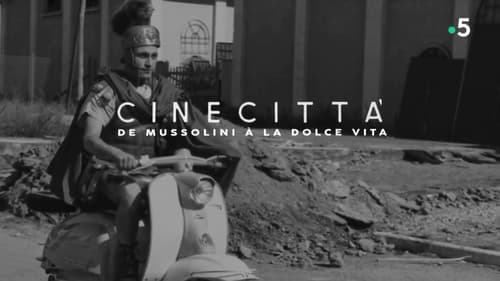
Self
Cinecitta is today known as the center of the Italian film industry. But there is a dark past. The film city was solemnly inaugurated in 1937 by Mussolini. Here, propaganda films would be produced to strengthen the dictator's position.
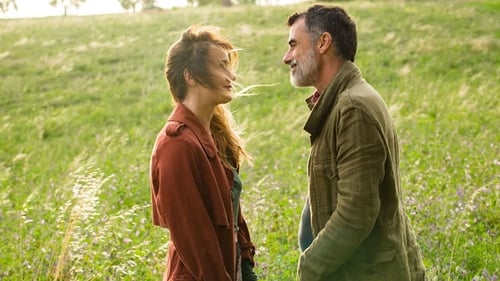
Screenplay
Claudia and Flavio were once passionately in love, but all of that is over. Now, in their fifties, they must venture anew into the world of love and dating once more but for Claudia confronting the end and accepting a new beginning isn’t so easy. Claudia is unwilling to let go and forget the life she’s built with Flavio, while Flavio, eager to move on, soon finds himself in a relationship with a much younger woman. Claudia soon reconnects with Nina, a student from her days as a professor.

Novel
Claudia and Flavio were once passionately in love, but all of that is over. Now, in their fifties, they must venture anew into the world of love and dating once more but for Claudia confronting the end and accepting a new beginning isn’t so easy. Claudia is unwilling to let go and forget the life she’s built with Flavio, while Flavio, eager to move on, soon finds himself in a relationship with a much younger woman. Claudia soon reconnects with Nina, a student from her days as a professor.

Director
Claudia and Flavio were once passionately in love, but all of that is over. Now, in their fifties, they must venture anew into the world of love and dating once more but for Claudia confronting the end and accepting a new beginning isn’t so easy. Claudia is unwilling to let go and forget the life she’s built with Flavio, while Flavio, eager to move on, soon finds himself in a relationship with a much younger woman. Claudia soon reconnects with Nina, a student from her days as a professor.

Writer
Gina and Marco are living in the suburbs of Rome. The two meet on a very special day: their first day at work. They have a future that awaits them and really seems at hand. Gina is about to realize her dream of becoming an actress, while Marco for the first time has found an opportunity that allows him to start dreaming: a job in a car rental company as a driver. They are enabled to know each other since his first duty is to drive Gina to an appointment, and given a delay, they have to share the whole day. This journey will take them from the periphery to the center of the city, will serve both to compare their experiences and think about a future that has already begun...

Director
Gina and Marco are living in the suburbs of Rome. The two meet on a very special day: their first day at work. They have a future that awaits them and really seems at hand. Gina is about to realize her dream of becoming an actress, while Marco for the first time has found an opportunity that allows him to start dreaming: a job in a car rental company as a driver. They are enabled to know each other since his first duty is to drive Gina to an appointment, and given a delay, they have to share the whole day. This journey will take them from the periphery to the center of the city, will serve both to compare their experiences and think about a future that has already begun...

Self
Until the 1970s, Italian cinema dominated the international scene, even competing with Hollywood. Then, in just a few years, came its rapid decline, the flight of our greatest producers, a crisis among the best writer-directors, the collapse of production. But what are the true causes and circumstances of this decline? In an attempt to provide an answer to this question, Di Me Cosa Ne Sai strives to depict this great cultural change. Begun as a loving examination of Italian cinema, the film transformed into a docu-drama that alternates between interviews with the great names of the past and fragments of cultural and political life of the last 30 years. It is a travel diary that shows Italy from north to south, through movie theatres; television-addicted kids; Berlusconi and Fellini; shopping centers; TV news editors; stories of impassioned film exhibitors and directors who fight for their films; and interviews with itinerant projectionists and great European directors.
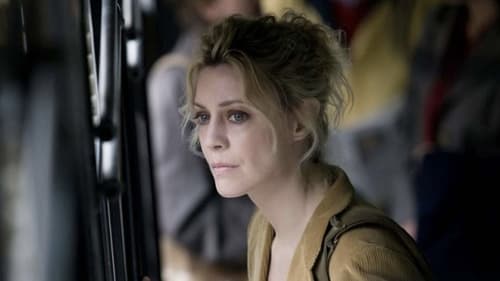
Writer
마리아는 이혼 후 꿋꿋이 싱글의 삶을 살아가는 야학 교사다. 영화를 보러 갔다가 애인이 생기면서 달콤한 한때를 보내지만, 예기치 못한 임신을 하자 고민 끝에 헤어진다. 아이가 조산되면서 온갖 생각에 번뇌한다.

Director
마리아는 이혼 후 꿋꿋이 싱글의 삶을 살아가는 야학 교사다. 영화를 보러 갔다가 애인이 생기면서 달콤한 한때를 보내지만, 예기치 못한 임신을 하자 고민 끝에 헤어진다. 아이가 조산되면서 온갖 생각에 번뇌한다.

Writer
The movie revolves around the factory worker figure evolution from post-WWII in Italy, with the emigration from southern to northern regions, the years of economic boom, the strikes, the riots and the infamous march of the 40000 in Turin in 1980.

Director
The movie revolves around the factory worker figure evolution from post-WWII in Italy, with the emigration from southern to northern regions, the years of economic boom, the strikes, the riots and the infamous march of the 40000 in Turin in 1980.
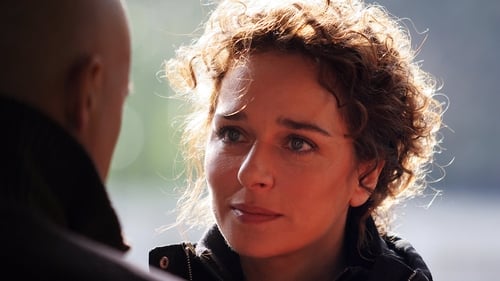
Writer
Set in Milan, where people's lives are invisibly lead by money in its different shapes: too much, too little, stolen, earned, visible and even impalpable. The money flows from one story to the next, from one person to the other, becoming the engine of the film.Everything moves around two antagonist characters: Ugo and Rita. Ugo is a banker involved in a not really clean business. Rita, the Finance Police officer, is a strong and obstinate woman in charge of capturing Ugo. Other characters wander around them, with their weaknesses and fragility, their goodness, their evil and their contradictions. Characters meet, clash, love and hate each other, their lust for money becomes intense feelings.

Story
Set in Milan, where people's lives are invisibly lead by money in its different shapes: too much, too little, stolen, earned, visible and even impalpable. The money flows from one story to the next, from one person to the other, becoming the engine of the film.Everything moves around two antagonist characters: Ugo and Rita. Ugo is a banker involved in a not really clean business. Rita, the Finance Police officer, is a strong and obstinate woman in charge of capturing Ugo. Other characters wander around them, with their weaknesses and fragility, their goodness, their evil and their contradictions. Characters meet, clash, love and hate each other, their lust for money becomes intense feelings.

Director
Set in Milan, where people's lives are invisibly lead by money in its different shapes: too much, too little, stolen, earned, visible and even impalpable. The money flows from one story to the next, from one person to the other, becoming the engine of the film.Everything moves around two antagonist characters: Ugo and Rita. Ugo is a banker involved in a not really clean business. Rita, the Finance Police officer, is a strong and obstinate woman in charge of capturing Ugo. Other characters wander around them, with their weaknesses and fragility, their goodness, their evil and their contradictions. Characters meet, clash, love and hate each other, their lust for money becomes intense feelings.
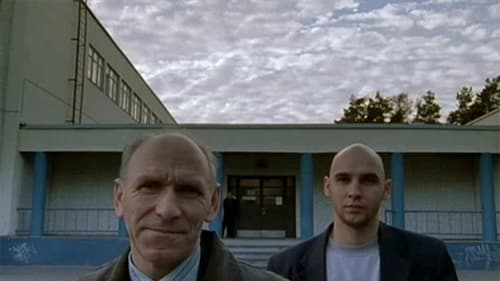
Director
Twenty-five films from twenty-five European countries by twenty-five European directors.

Writer
A woman comes across the difficulties of modern work: to force her to resign from her job, her firm tries all the humiliation techniques known as "mobbing". The film is based upon real cases reported by Italian unions.

Director
A woman comes across the difficulties of modern work: to force her to resign from her job, her firm tries all the humiliation techniques known as "mobbing". The film is based upon real cases reported by Italian unions.

Writer
The film recounts Carlo Giuliani’s day of July 20 and, parallel to it, the July 20 of the march of the ‘disobedients’, or the ‘white overalls’, among whose ranks Carlo died. An individual’s story is told in all its absolute concreteness, the friends he meets, the snack bar he goes to for a bite, the roll of scotch tape he picks up on the street; whereas a multitude’s story is told in all its epic tragedy, the night under the rain, the colossal preparation against the march, the advance behind shields, the attack of which the multitude was victim, the defense that gets organized.

Director
The film recounts Carlo Giuliani’s day of July 20 and, parallel to it, the July 20 of the march of the ‘disobedients’, or the ‘white overalls’, among whose ranks Carlo died. An individual’s story is told in all its absolute concreteness, the friends he meets, the snack bar he goes to for a bite, the roll of scotch tape he picks up on the street; whereas a multitude’s story is told in all its epic tragedy, the night under the rain, the colossal preparation against the march, the advance behind shields, the attack of which the multitude was victim, the defense that gets organized.

Director
At 30, Zeno's father dies, and he realizes that his youth is almost over. Meeting Giovanni Malfenti, a succesful gallery owner with four daughters, he's impressed by Malfenti's energy, and falls in love with one of his daughters. This relationship helps Zeno find peace and direction.

Self
The film consists largely of a series of interviews with female filmmakers from several different countries and filmmaking eras. Some, such as Agnès Varda and Catherine Breillat (both from France), have been making films for decades in a conscious effort to provide an alternative to the male filmmaking model; others, such as Moufida Tlatli (Tunisia) and Carine Adler (England), are relative newcomers to directing, and their approaches seem more personal and less political. The film as a whole manages to cover some important topics in the feminist debate about film -- how does one construct a female gaze, how can one film nude bodies without objectifying the actors (of either sex), what constitutes a strong female role -- while also making it clear that “women’s film” comprises as many different approaches to filmmaking as there are female filmmakers.

Assistant Director
In the 15th century, in a poor Italian village, the monks of a modest convent take up an abandoned baby. Unfortunately, for all their efforts, they prove unable to trace his parents. So they set up providing tender loving care to the little boy. Marcellino lives a happy life among the men of God but, as he grows up, he misses his mother more and more.

Screenplay
In this mildly explicit sexual drama, the lovely dancer Annabelle (Delphine Zingg) has a passionate relationship with an older man but eventually decides to devote her romantic energies to a younger man with whom she has more in common. Between sex scenes, and philosophical discussions between friends and lovers about love and relationships, the viewer is treated to shots of the lovely dancer mulling over her life at various scenic locations in Paris.

Director
In this mildly explicit sexual drama, the lovely dancer Annabelle (Delphine Zingg) has a passionate relationship with an older man but eventually decides to devote her romantic energies to a younger man with whom she has more in common. Between sex scenes, and philosophical discussions between friends and lovers about love and relationships, the viewer is treated to shots of the lovely dancer mulling over her life at various scenic locations in Paris.

Director
An urban gigolo on the run from a mobster hides out at the remote cabin of a female novelist in this plodding romantic drama. Her neighbors include an elderly man with a penchant for growing sunflowers and an unhappy neighbor girl with emotional problems. Love blossoms for the unlikely couple who somehow realize their liaison is doomed to failure.

Self (Segment "Pèlerinage à Agen")
In 1988, Figaro magazine asked a few famous directors to direct a series of short movies to celebrate the 10 years of the revue. The movies have been released for the French revolution bicentenary. Includes: Werner Herzog's Les Gaulois, David Lynch's The Cowboy and the Frenchman, Andrzej Wajda's Proust contre la déchéance, Luigi Comencini's Pèlerinage à Agen, Jean-Luc Godard's Le dernier mot.
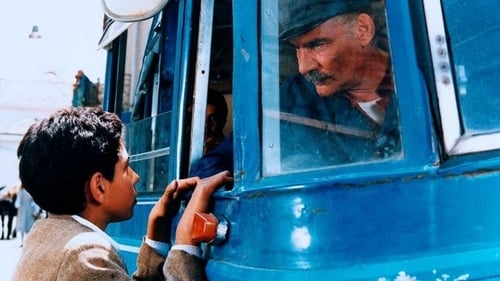
Writer
Set in 1960, the year of the Rome Olympics, a 13 year-old boy with aspirations to become an athlete befriends an ageing, disabled bus driver who understands his ambitions.

Writer

Director
























